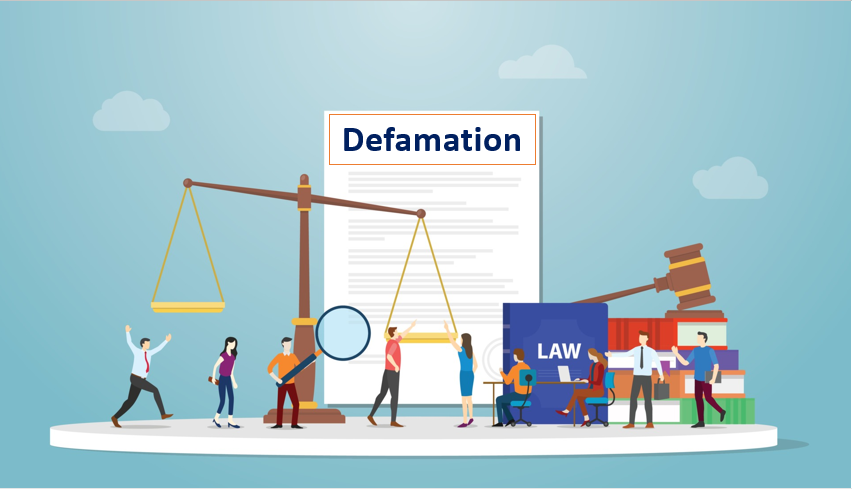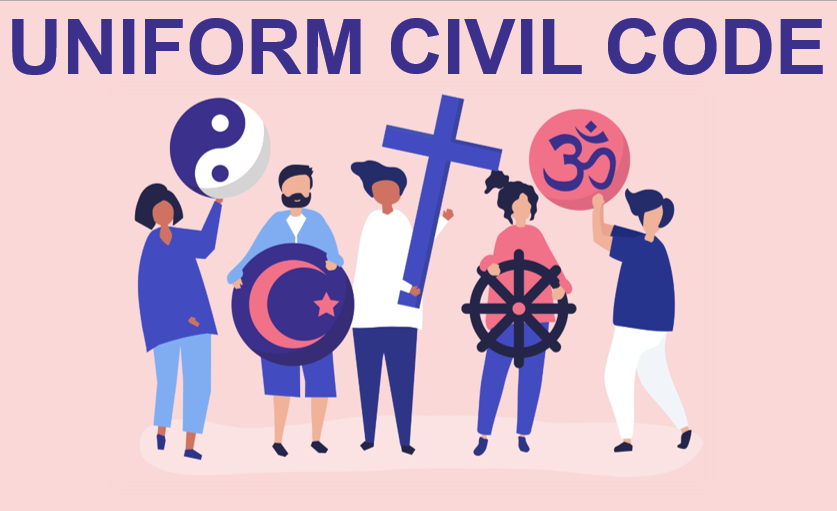Published On: 9th April, 2024
ABSTRACT:
White Collar Crimes are those criminal offences that are of a non-criminal nature. They are mostly done to gain money through illegal means and to camouflage their financial loss through illegal means like concealment, deceit, scam, forgery, money laundering, etc. This has been skyrocketing in India for the past decades. This article aims to contribute to a detailed examination of White-Collar Crimes in India within the framework of Indian Laws. It also explores the area with the help of some precedents and statutes that not only analyze the offence but also have advocated the need for stringent laws to curb such heinous acts which might affect the economic growth of the country to a large extent. These crimes are pervasive and are common in every part and occupation of society. This article will also delve into the legal framework and judicial interpretations of the same.
KEYWORDS:
White Collar Crime, Forgery, Deceit, Money Laundering, Scam, Concealment.
INTRODUCTION:
The concept of White-Collar Crime was defined in the field of Criminology by Prof. Edwin Sutherland. He defined the offense as, “a crime committed by persons of respectability and high social status in the course of their employment.” [1] These crimes are of such a nature that the injury or the damage caused because of their actions is so widely diffused in the large body of the citizens that their gravity as regards individual victims is almost negligible. They are closely related to the attitudes and values of culture in a particular society. These crimes are indirect, anonymous, impersonal, and difficult to detect. This is evident from the fact these criminals are highly intelligent, stable, successful, and men of high societal status. Prof Sutherland, however, suggests that class position itself is no determinant of white-collar crime. Unfortunately, people who commit these offences are not entailed with penalties as they do not carry out any major punishments. But the recent amendments that have been introduced in the Company Law, Insurance, and Banking Laws, the appointment of Lokpal, and tightening of the governmental control over the business, and privatization of businesses have sufficiently reflected upon the Government’s firm determination to suppress white collar criminality in India. India has witnessed a significant surge in white-collar crimes over the past decade, due to rapid economic growth, globalization, technological advancements, and weakness in regulatory and enforcement mechanisms.
Prevailing Causes for White Collar Crimes:
The general assumption is that White Collar Crimes are mostly committed due to materialism or economic instability. But they are also committed due to situational pressures or the possessiveness of getting more money. However, there are many causes for this offense. Some of them are highlighted below:
- Lack of Strict Enforcement: Weak enforcement of laws and regulations allows individuals to engage in white-collar crimes without fear of significant consequences.
- Corruption: Rampant corruption in various sectors creates an environment conducive to white-collar crimes as individuals may resort to unethical practices for personal gain.
- Complex Regulatory Environment: Complicated regulations can be exploited by individuals who manipulate loopholes for fraudulent activities.
- Lack of Awareness: Many people may not fully understand the implications of white-collar crimes, making them more susceptible to engaging in such activities.
- Pressure to Succeed: In a competitive environment, individuals may feel pressured to achieve success at any cost, leading them to commit white-collar crimes.
- Technological Advancements: Advancements in technology provide new avenues for committing financial crimes, such as cyber fraud and identity theft.
- Inadequate Punishment: Lenient punishments or delays in legal proceedings can embolden individuals to continue engaging in white-collar crimes.
- Greed: The desire for wealth and material possessions can drive individuals to participate in fraudulent schemes and financial misconduct.
- Lack of Ethical Values: A lack of emphasis on ethical behavior in business practices can lead individuals to prioritize personal gain over integrity.
- Social Acceptance: In some cases, white-collar crimes may be normalized or socially accepted within certain circles, making it easier for individuals to justify their actions.
Types of White-Collar Offences:
These offences frequently involve misuse of money, assets, or information and are usually done by people of higher authority like managers, executives, highly profiled businessmen, etc. Some of the well-known types of White-Collar Crimes in India are the following:
- Bribery: Offering, giving, receiving, or soliciting something of value to influence the actions of an official or other person in a position of authority.
- Embezzlement: Misappropriating or stealing funds or assets entrusted to one’s care, often by an employee or someone in a position of trust.
- Money Laundering: Concealing the origins of illegally obtained money, typically by transferring it through a complex sequence of banking transfers or commercial transactions.
- Insider Trading: Buying or selling stocks based on non-public, material information about a company, which can lead to unfair advantages and illegal profits.
- Cybercrime: Committing crimes using a computer or the internet, such as hacking, phishing, identity theft, or spreading malware for financial gain.
- Forgery: Creating fake documents or altering existing ones with the intent to deceive for financial gain.
- Tax Evasion: Illegally avoiding paying taxes by underreporting income, inflating deductions, or hiding money in offshore accounts.
- Securities Fraud: Deceiving investors or manipulating financial markets through false information about securities trading.
- Ponzi Schemes: Fraudulent investment schemes that promise high returns to early investors using the capital of new investors rather than legitimate profits.
- Corruption: Abuse of power for personal gain, often involving public officials engaging in dishonest or illegal activities.
Statutory Framework:
There are various laws that govern and keep a check on the white-collar crimes in crimes in the country. Some important statutes have been introduced to curb white-collar offences. Some of the important ones are as follows:
- The Indian Penal Code, 1860 (IPC):
Section 405 deals with criminal breach of trust, which is a common white-collar crime where a person entrusted with property misappropriates it.
- The Prevention of Corruption Act, 1988:
Section 7 deals with public servants taking gratification other than legal remuneration for performing their duties improperly.
- The Companies Act, 2013:
Section 447 pertains to punishment for fraud, which includes activities like falsification of accounts or financial statements.
- The Benami Transactions (Prohibition) Act, 1988:
This Act prohibits benami transactions, where property is held by one person but paid for by another.
- The Securities and Exchange Board of India (SEBI) Act, 1992:
This Act regulates the securities market and aims to prevent insider trading and other fraudulent practices.
- The Foreign Exchange Management Act, 1999 (FEMA):
FEMA deals with foreign exchange violations and money laundering offenses.
- The Prevention of Money Laundering Act, 2002 (PMLA):
PMLA aims to prevent money laundering and provides for the confiscation of property derived from money laundering.
- The Competition Act, 2002:
This Act deals with anti-competitive agreements, abuse of dominant position, and regulation of combinations that may have an adverse effect on competition in India.
- The Information Technology Act, 2000:
This Act deals with cybercrimes such as hacking, data theft, and electronic fraud.
- The Black Money (Undisclosed Foreign Income and Assets) and Imposition of Tax Act, 2015:
This Act targets undisclosed foreign income and assets held abroad.
Judicial Precedents and Pronouncements:
White-collar Crimes have been on the rise for constant and the judiciary has taken note of the same. The following are some of the landmark cases of white-collar crimes and what decision was upheld-
- Satyam Computer Services Ltd. Scam [2]
The Satyam Computer Services Ltd. scam, also known as the “Biggest Corporate Fraud in India,” was a landmark case involving the manipulation of accounts and assets by the company’s founder, Ramalinga Raju. The scam came to light in 2009, when Raju admitted to inflating the company’s revenue and falsifying its balance sheet. The case led to significant changes in corporate governance and regulatory frameworks in India.
- Kingfisher Airlines Scam [3]
The Kingfisher Airlines scam involved the defaulting of loans worth over ₹9,000 crores by the now-defunct airline. The case highlighted the issue of willful default on loan repayment by business entities. The Supreme Court of India ordered the attachment of assets worth ₹1,400 crores belonging to the promoter of the airline, Vijay Mallya, who later fled the country.
- 2G Spectrum Scam [4]
The 2G Spectrum Scam, also known as the “Commonwealth Scam,” was a major corruption case involving the allocation of 2G spectrum licenses by the Department of Telecommunications in 2008. The case led to the cancellation of 122 2G licenses and resulted in the conviction of several high-profile politicians and businessmen, including former telecom minister A. Raja.
- Stock Market Manipulation Cases [5]
Several cases of stock market manipulation have been brought to light in recent years, highlighting the need for stronger regulatory measures. One such case is the Sahara-SEBI dispute, in which the Securities and Exchange Board of India (SEBI) ordered the Sahara Group to return over ₹24,000 crores to investors. The case set a precedent for the enforcement of investor protection laws in India.
- Narada Sting Operation Case
The Narada Sting Operation Case involved a sting operation conducted by a news channel, which exposed several politicians accepting bribes in return for favors. The case led to the arrest of several politicians and brought attention to the issue of corruption in Indian politics.
CONCLUSION:
In India, white-collar crime is a big issue that needs attention. White-collar crimes are committed by people in positions of trust, like business leaders or government officials, and they usually involve money or power. These crimes can have a big impact on society because they can harm the economy and affect many people’s lives.
One problem with dealing with white-collar crime in India is that the legal system is slow and overburdened. Trials can take a long time, and sometimes justice is delayed or denied. Another issue is that the people accused of these crimes often have a lot of money, so they can afford to hire the best lawyers to defend them. This can make it harder for prosecutors to prove their case.
While there have been some laws passed to address white-collar crime, there are still gaps in the legal framework. More needs to be done to deter people from committing these crimes and to hold them accountable when they do. This might involve stricter penalties for offenders or better enforcement of existing laws.
Overall, tackling white-collar crime in India requires a coordinated effort from the government, law enforcement, and the legal system. It is important to ensure that everyone is held accountable for their actions, regardless of their wealth or status. By strengthening the legal framework and improving enforcement, we can work towards a society where white-collar crime is less common and justice is served fairly for all. Overall, white-collar crime continues to be a serious and complicated problem that calls for ongoing attention and action by law enforcement organizations, regulators, corporations, and society at large. We can ensure that our financial and economic systems are just, open, and devoid of illicit behavior by cooperating to address this issue.
References:
- Sutherland, Edwin Hardin (1950). White Collar Crime. New York: Dryden Press, p. 9.
- Writ Petition No.37487 of 2012 & WAMP.No.155 of 2016 in W.A.No.133 of 2013
- WRIT PETITION (L) NO. 1684 OF 2015
- AIR 2012 SC 3336
- Civil Appeal No.: 8643 OF 2012


